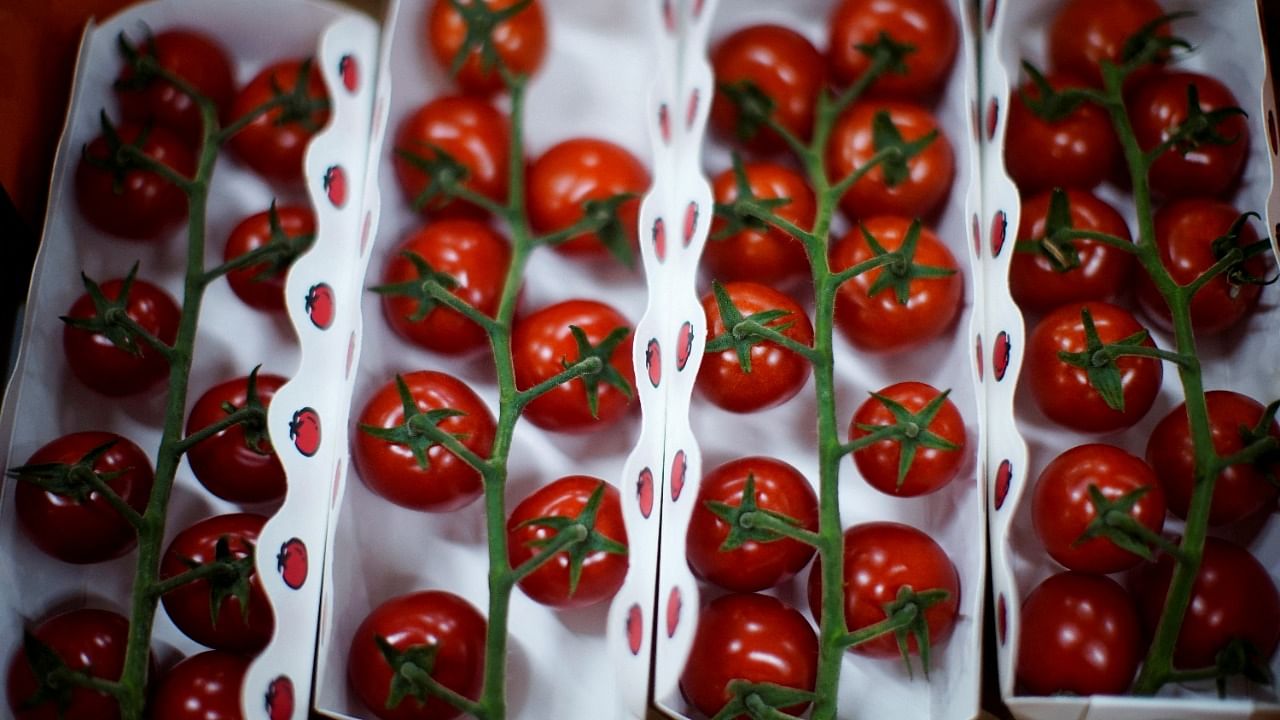
If British scientists have their way, two medium-sized tomatoes a day could keep the doctor away.
A research team led by scientists at the John Innes Centre in Norwich have edited the genetic makeup of tomatoes to become a robust source of vitamin D, which regulates nutrients like calcium that are imperative to keeping bones, teeth and muscles healthy.
Although vitamin D is created in our bodies after exposure to sunlight, its major source is food, largely in dairy and meat.
Low vitamin D levels - associated with a plethora of conditions from cancer to cardiovascular disease - affect roughly 1 billion people globally, the researchers said.
Tomato leaves naturally contain one of the building blocks of vitamin D3, called 7-DHC. Vitamin D3 is considered best at raising vitamin D levels in the body.
Scientists used the Crispr tool - which is designed to work like a pair of genetic scissors - to tweak the plant's genome such that 7-DHC substantially accumulates in the tomato fruit, as well as the leaves.
When ultraviolet light was shined on leaves and sliced fruit for an hour, one tomato contained the equivalent levels of vitamin D as two medium-sized eggs or 28 grams (1 ounce) of tuna, the researchers wrote in a paper published in the journal Nature Plants.
Most vitamin D3 supplements come from lanolin, which is extracted from sheep's wool. Since the sheep stays alive, it works for vegetarians, but not vegans.
Lichen is considered a vegan source of vitamin D3, but the data underpinning its effectiveness is limited - and it is also expensive, said Susan Lanham-New, head of the department of nutritional sciences at the University of Surrey.